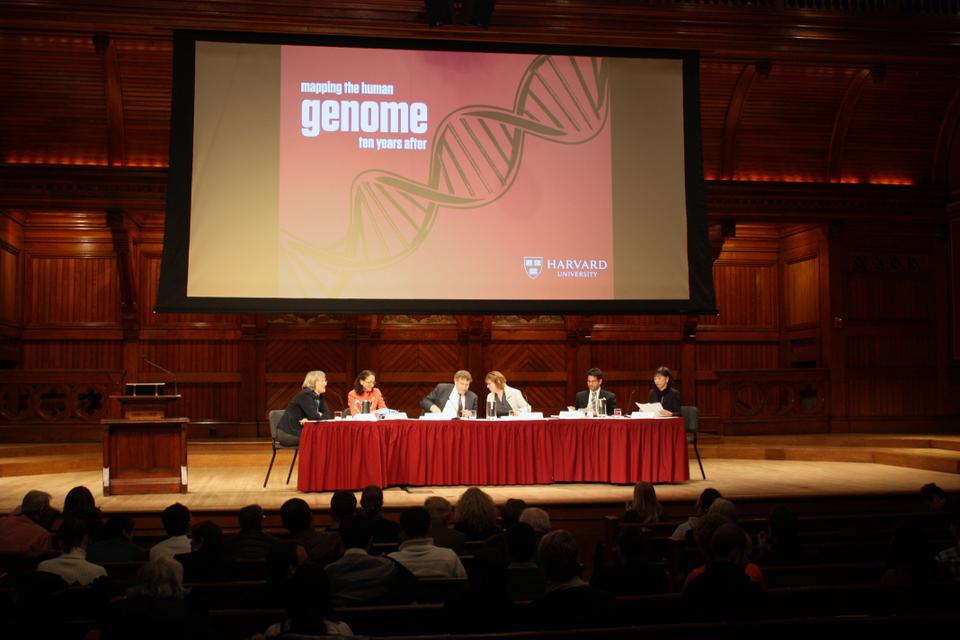
News
Garber Privately Tells Faculty That Harvard Must Rethink Messaging After GOP Victory

News
Cambridge Assistant City Manager to Lead Harvard’s Campus Planning

News
Despite Defunding Threats, Harvard President Praises Former Student Tapped by Trump to Lead NIH

News
Person Found Dead in Allston Apartment After Hours-Long Barricade

News
‘I Am Really Sorry’: Khurana Apologizes for International Student Winter Housing Denials
Panel Discusses Genome Research
Scientists and FDA Commissioner consider the future of genome mapping

Scientists discussed the importance and impact of the Human Genome Project yesterday at a panel moderated by University President Drew G. Faust in honor of the tenth anniversary of the publication of a nearly complete genome map in the scientific journal Nature.
The panelists—professors, a Genome Project leader, and a U.S. Food and Drug Administration commissioner—all agreed that the mapping of the human genome was tremendously valuable and will continue to drive research for many years to come.
An international undertaking that successfully mapped the entire human genome in 2003, the Project has had an enormous impact on research, considering its relatively recent publication a decade ago, according to Medical School professor Eric S. Lander, who spoke on the panel and also directs the Harvard and MIT-affiliated Broad Institute.
“They have the tools to do today what it used to take armies to do,” Lander said.
Yet Lander and some of his fellow panelists added that some public expectations of immediate results were impractical.
“The discipline of inventing medicine is one that takes a very long time,” said Vicki L. Sato ’68, a professor at Harvard Business School and the Molecular and Cellular Biology department.
M. Susan Lindee, chair of the Department of History and Sociology of Science at the University of Pennsylvania, brought up ethical questions that have arisen due to the recent availability of genomic information.
For example, doctors or scientists are left with an ethical dilemma when they discover that an individual has an incurable disease after conducting unrelated genetic testing, or when they discover that an individual is not in fact the father of his child.
Panelists added that more cooperation between scientists of different disciplines has been required to operate the new genetic sequencing technologies and decipher the results.
Student response to the panel was quite positive.
“I thought it was inspiring, and showed how important education in science is in our country,” Matthew D. Moellman ’14 said.
The panelists posed many important questions about where society and science are headed, according to Brandon Liu ’14.
“Clearly this is a critical moment as we are just beginning to integrate genomics into medical care,” FDA Commissioner Margaret A. Hamburg ’77 said.
Want to keep up with breaking news? Subscribe to our email newsletter.
